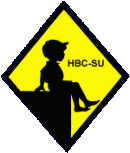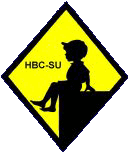
Figure 1.--. |

|
Rugby was invented in England and is a major school sport. It is is also very popular in New Zealand and Fiji. Rugby is less widely played. Social class has had a major impact on sport in Britain. Football was one seen as a working class sport. Some public (exclusive private) schools once banned football in favor of rugby. A British reader writes, "Rugby is VERY widely played. Not as popular as football but by no means a lesser sport. In some areas it is THE sport with football taking the lesser role. Schools play both Union and League rules but that depends upon where they are located. Many independent schools only play rugby (sometimes referred to as 'rugger') and only have football as a minor game." From my experience in Britain, rugby is very widely played at schools. Many schools (especially private schools) in fact give greater emphasis to rugby than football. But whith kids at home the passion is football. If you see kids playing on the street or in parks, it is normally around football they are kicking.
The early history of rugby is about rugby in English schools. Rugby was invented in England. And it is named after the school where it first developed. Rugby is of course one of Britain's great public (private boarding) schools. In many ways it is an anomaly. It became along with cricket, the principal sports (games) played at public schools and of interest to upperclass English. This appears a contradiction in that the sport requires enormous physical strength, extensive physical contact, and played in the English autumn is an often muddy, filthy slog. The public schools in turn rejected football (soccer), an elegant game requiring more finess and with less physical contact. Football proceeded to become the game of choice of the working class and virtually the entire rest of the world, except America.
Rugby as it was invented in England became a major school sport there. It is today played in large number of countries around the worldIt is is also very popular in New Zealand and Fiji. Rugby is less widely played than football outside of school. A British reader writes, "Rugby is VERY widely played. Not as popular as football but by no means a lesser sport. In some areas it is THE sport with football taking the lesser role. Schools play both Union and League rules but that depends upon where they are located. Many independent schools only play rugby (sometimes referred to as 'rugger') and only have football as a minor game." From my experience in Britain, rugby is very widely played at schools. Many schools (especially private schools) in fact give greater emphasis to rugby than football. But whith kids at home the passion is football. If you see kids playing on the street or in parks, it is normally around football they are kicking.
Social class has had a major impact on sport in Britain. Football was one seen as a working class sport. Some public (exclusive private) schools once banned football in favor of rugby.
Rugby was the principal sport at Britain's public (private schools). Because of this it became the msain sport at the preparatory and grammar (selective secondary) schools. Many private schools in England even into the 1950s did not allow boys to play football becase it was considered a working class sport. Rugby was the preminent public (private secondary) school sport. We note Eton boys playing Rugby in 1980. Now the English private schools play both football and rugby, but most still give greater emphasis to rugby. But as in most of the rest of the world, football in England is much more popular than rugby. An English reader writes, "I had to play Rugby at my school and didn't really like it but as others did I took a sort of interest in it and still do."
An English reader writes, "I am a rugby fan rather than football supporter but Rugby is very widely
played and just as much in state as well as private schools. It gained even
greater support when England won the World Cup and beat the Aussies. It
looses some of its appeal as it is not a game which can easily be played
like football where you just need a ball and some space but is widely
played. In my town there are over 300 members of the youth sides in one
club alone; there are 3 main clubs. Football is still the biggest game,
however. It is gradually losing its appeal as people cotton on to it now
being more of a business than a sport and the unsportsmanlike way it is
played by some professionals."
Related Chronolgy Pages in the Boys' Historical Web Site
[Main Chronology Page]
[The 1880s]
[The 1930s]
[The 1940s]
[The 1950s]
[The 1960s]
[The 1970s]
[The 1980s]
Related Style Pages in the Boys' Historical Web Site
[Main school uniform page]
[Main country page]
[Long pants suits]
[Short pants suits]
[Socks]
[Eton suits]
[Jacket and trousers]
[Blazer
[School sandals]
Navigate the Boys' Historical Clothing Web Page
[Return to the Main English school sport page]
[Return to the Main English sport page]
[Return to the Main rugby country page]
[About Us]
[Activities]
[Chronology]
[Clothing styles]
[Countries]
[Debate]
[Economics]
[Garment]
[Gender]
[Hair]
[History]
[Home trends]
[Literary characters]
[School types]
[Significance]
[Transport and travel
[Uniform regulations]
[Year level]
[Other topics]
[Images]
[Links]
[Registration]
[Tools]
[Return to the Historic Boys' School Home]
